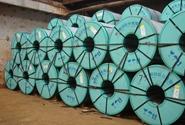Market Segment

September 6, 2016
G20 Forms Global Forum on Excess Steel Capacity
Written by John Packard
The G20 group of nations released their thoughts regarding excess steel capacity and what they are doing to rectify the situation (essentially they are kicking the can to 2017 when they will meet again and hear from an OECD committee on the subject).
China has promised to cut steel production by 45 million metric tons (49.6 million net tons) this year but, they admitted last month that they are behind in reaching that modest goal. In January China promised to remove 100 to 150 million metric tons of steel production by the year 2020 (110 million to 165 million net tons). However, the belief is the Chinese will need to remove 300 million metric tons (330 million net tons) in order to get back to balance capacity with demand.
Here is part of the G20 press release:
“We recognize that the structural problems, including excess capacity in some industries, exacerbated by a weak global economic recovery and depressed market demand, have caused a negative impact on trade and workers. We recognize that excess capacity in steel and other industries is a global issue which requires collective responses. We also recognize that subsidies and other types of support from government or government-sponsored institutions can cause market distortions and contribute to global excess capacity and therefore require attention. We commit to enhance communication and cooperation, and take effective steps to address the challenges so as to enhance market function and encourage adjustment. To this end, we call for increased information sharing and cooperation through the formation of a Global Forum on steel excess capacity, to be facilitated by the OECD with the active participation of G20 members and interested OECD members. We look forward to a progress report on the efforts of the Global Forum to the relevant G20 ministers in 2017.”
We spoke with trade attorney Lewis Leibowitz who told us that the OECD had offered to pursue discussions through its Steel Committee. But because Russia, India, Brazil and China are not members of the OECD (but all are G20 members), these countries insisted on a separate structure for steel discussions. A compromise was apparently reached to form a steel negotiating group (the Global Forum on steel excess capacity) to be “facilitated by the OECD” but including members of the G20 (including Russia, China, Brazil and India) as well as members of the OECD. Major steel producers other than the above-mentioned four countries are members of OECD.
Clearly, this Forum will gather information; but there is no commitment to a plan of action until the facts are presented to the next G20 ministerial meetings in 2017.
Nine steel groups in North, South and Latin America have praised the G-20 governments for recognizing the impact global steel overcapacity has had on the industry but said it must be followed with “concrete policy actions by governments to reduce excess capacity, end subsidies and government measures that distort markets, and guarantee a level playing field driven by market forces in the near term.”
“Our industry is at a crossroads. Governments must take action or we will remain in crisis,” wrote the steel groups that includes representatives of the American Iron and Steel Institute (AISI), EUROFER (European Steel Association), the Steel Manufacturers Association (SMA), the Canadian Steel Producers Association (CSPA), CANACERO (the Mexican steel association), Alacero (the Latin American Steel Association), Brazilian Steel Institute, the Committee on Pipe and Tube Imports (CPTI) and the Specialty Steel Industry of North America (SSINA).







